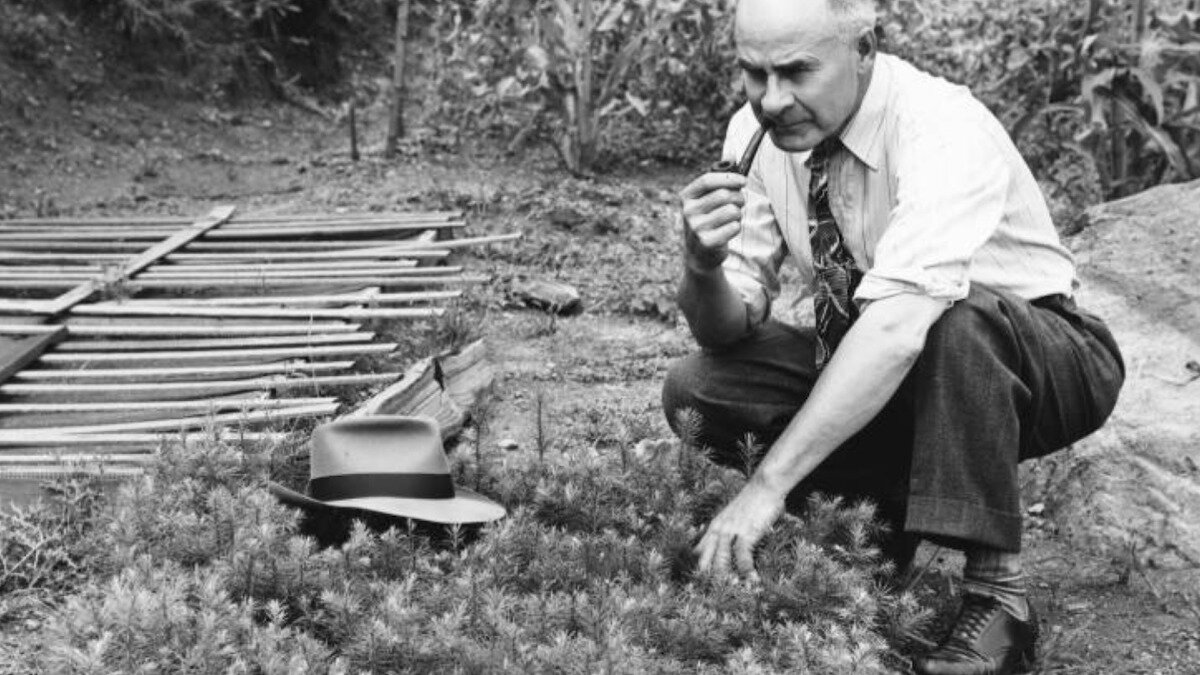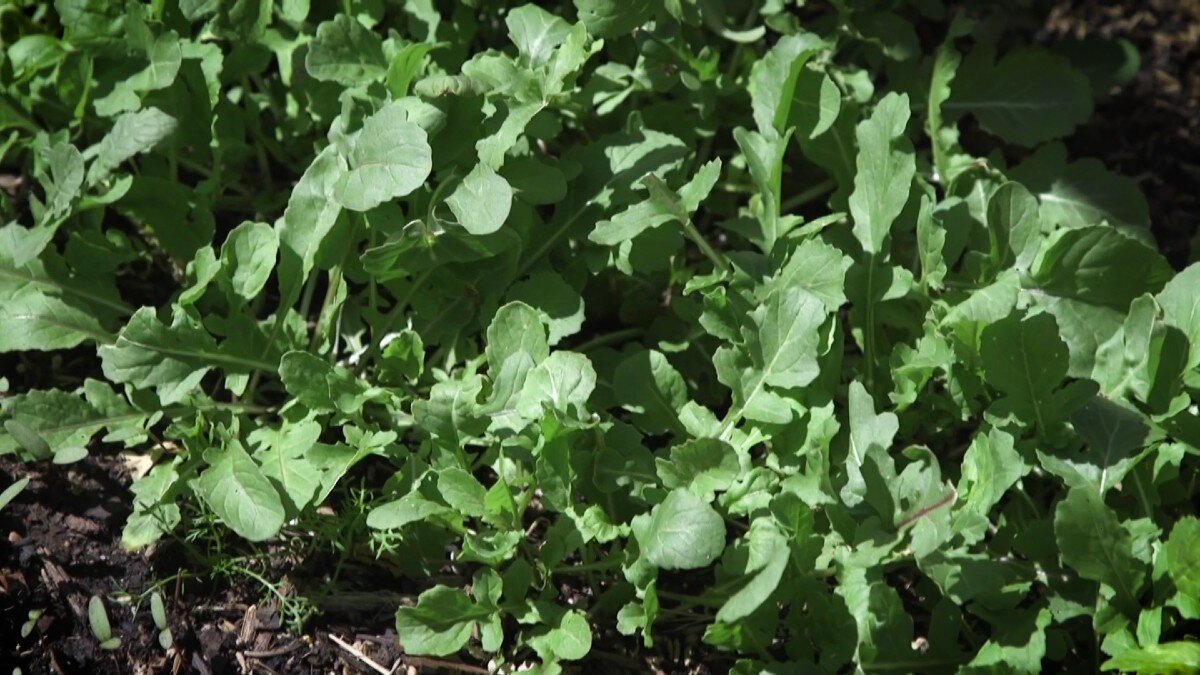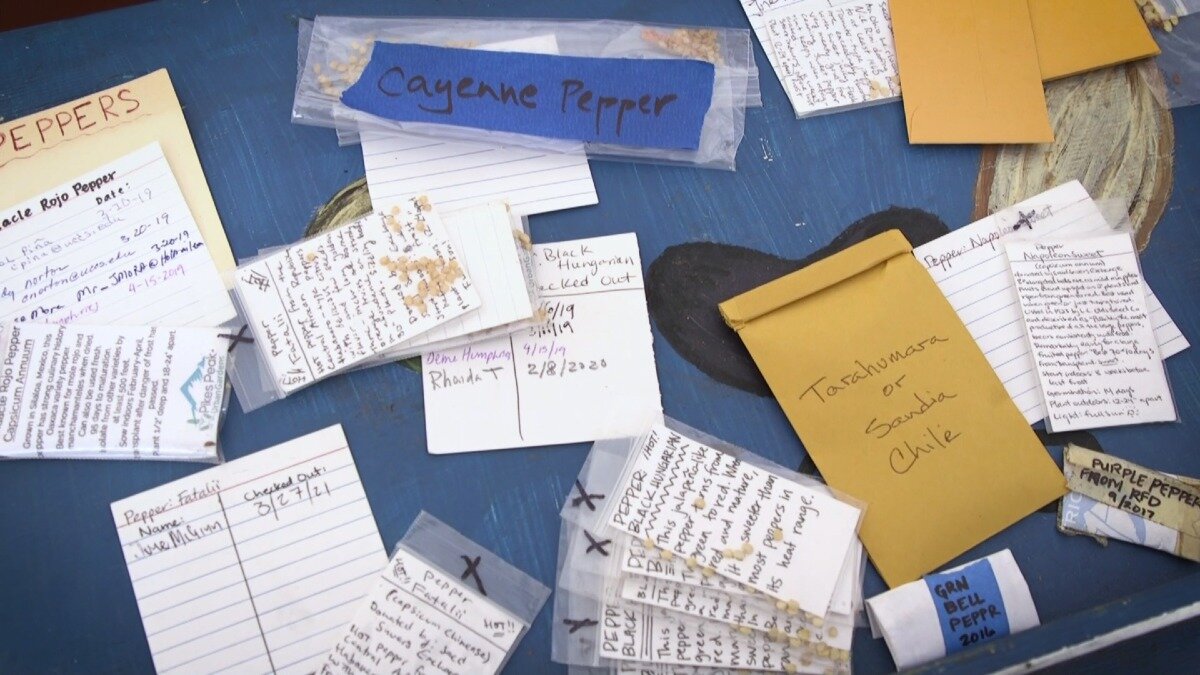Urban farm in Manitou Springs cultivates land, food and community

MANITOU SPRINGS, Colo. — Flying Pig Farm, a one-acre urban educational facility nestled in Manitou Springs, works with school and community groups to reconnect people’s relationships with land, food — and each other.
“Urban farms and rural farms are quickly disappearing,” said owner Douglass Keithley Edmundson. “To have something inter-urban like this, still in one piece, is extremely rare. We’re really lucky to be doing this.”
Today, Flying Pig hosts gardening and farming classes, day camps, community events, and skill-building workshops and activities for folks to share knowledge while working alongside each other.
Today, Flying Pig hosts gardening and farming classes, day camps, community events, and skill-building workshops and activities for folks to share knowledge while working alongside each other.
Edmundson comes from a lineage of stewards of this property — and the land was once used for a different purpose.
In 1919, his great-grandfather Everard Spencer Keithley bought the land “raw,” Edmundson said. “There was nothing here — no trees, no houses.”
Keithley was Supervisor of Pike National Forest from 1917 until his retirement in 1946. He opened Keithley Pines Tree Nursery on the land, and in the 1920s, began selling trees commercially. By the mid-30s, he had 35,000 seedlings on the property, including Engelmann spruce, Lodgepole pine, and pinon, as well as yucca and grasses.
“He donated 25,000 trees to the City of Colorado Springs,” Edmundson said. “Those were transplanted into Garden of the Gods — and those are the trees you see today.”

His great-grandfather was still alive, and the tree nursery active, when Edmundson was a child. He remembers following Keithley as he wandered the property and worked on the cabins, rock walls and grounds. People came to buy Christmas trees from the farm each year.
Keithley passed in 1973. He is responsible for planting or supervising the planting of some 30 million evergreen trees. This included the reforestation of the slopes of Tava (Pikes Peak), the Mount Herman burn near Palmer Lake, and other areas of the South Platte watershed. He was also credited with originating the red tag used on Christmas trees cut from national forests.
Following Keithley’s death, the nursery became vacant land and went wild, Edmundson said.
In the early 2000s, Edmundson wanted to do something with his great-grandfather’s former tree farm. With the help of Jeremy Tackett, an organic farmer, he opened Flying Pig Farm in 2014. Engaged with the city of Manitou Springs, the community farm flourished.
“Then, over the past four years, the leadership of Ruthie Markwardt and Barak Ben-Amots has blossomed into a wonderful collaboration with School District 14, Community Prep School and other outreach programs that we’re very proud of,” Edmundson said.
“I think if my great-grandfather were alive today, that he would be very proud of what we’re doing here,” he said. “Particularly that we’re able to preserve the legacy of land and trees — and furthering the future of the community and its children.”
Edmundson credits Markwardt and Ben-Amots for starting the programs that sustain the farm and create educational opportunities for the community to have positive and respectful relationships with the land.
When he began volunteering at Flying Pig Farm, “I really knew nothing,” Ben-Amots said. “I did not spend any time gardening growing up. I basically didn’t have any pets. I came to the table with zero skills. And the first time that I was balancing on top of a 15-foot ladder with goats knocking at the base of the ladder while I was trying to hang up chicken wire — I was like — ‘This is the best thing that ever happened to me. I will do this forever.’”

Instead of creating a full-scale production model, the group determined to open the space up to the community.
“It’s been a really challenging year for a community garden to feel like a community space,” said Ben-Amots. “It’s been a long and cold winter. And as Spring is arriving, sort of the ultimate symbol of hope is the seeds. The seeds are just so vibrant, they are so abundant, and they’re just crying out to be put in the ground, to be brought back to life, and to spring into the world that we are dreaming of.”
The farm organized a spring seed swap to bring the community together in preparation for the growing season, offering many varieties of vegetables, fruits and berries, and perennial grasses and flowers.
“The seed swap was a way for us to reengage the community and invite people into our space in a safe way,” Ben-Amots said. “It’s just amazing to see the liveliness that comes out of people in a context like this.”
The farm includes students in decision-making and representation, including having students serve on the farm’s Board of Directors.
“I’m a big animal person, so I absolutely love and enjoy learning about animals, like chicken care, goat care, and recently, duck care,” said Izzabella Erickson, a ninth grade Student Board Member at the farm. Erickson started coming to the farm in sixth grade. “It’s a big area in which to learn.”
“They are so empowered when they come here because they realize that they’re not just waiting to become adults,” said Ben-Amots. “They can take responsibility for their lives, for their health, for their family’s health. It’s so amazing to see these kids come back year after year with new knowledge of how to grow things, a new commitment to growing healthy food for their family and for themselves — and even bringing their younger siblings in.”
Eric Couture Jr. started in the student program the first year it was offered. Now, he mentors younger students on the farm, while his younger brother, Karo, participates in the programs.

Their dad, Eric Couture Sr., said, “The kids love it. This is their favorite place to be. They get to see everything that it takes to grow things — not just planting a seed, but the whole maintenance of it.”
“We’re losing this kind of knowledge as our generations don’t pass the information down,” he added. “We didn’t have this kind of stuff in high school.”
The family has come to show their support for the seed swap.
“The seed swap is an opportunity for people who garden to bring seeds they’ve saved, and trade them with each other, and for people who are just getting started to come receive seeds,” said Farm Coordinator Ruthie Markwardt. “These are seeds that have been adapted to this region because they’ve been grown here, sometimes for generations. Some of them for up to hundreds of years. So the seeds that we’re sharing today are more resilient. It also keeps things in the community. It keeps us trading, sharing, and mutually supporting one another.”
Flying Pig has hosted the Colorado Springs Seed Library for four years. “People can check out seeds year-round, and can contact us if they’d like us to come to their events. The idea is that we can bring seeds to community groups, rather than them having to come to us. We’re trying to spread seeds as far as possible,” said Markwardt.
Last spring “was a big shock for a lot of people,” Markwardt said. “When the grocery stores were empty, we realized that we need to rely on our neighbors and on our local foodshed a little bit more. The support for local food in the last year has been overwhelmingly amazing. I hope we can continue that going forward.”
“Especially when students come to the farm, I can tell they’re craving that interaction with each other,” she said. “They’re craving being outside after being trapped in their houses and on their computers. So it’s really wonderful to see that re-engagement happening — and this is the perfect season to do that.”